- Home
- Jean Stone
A Vineyard Morning Page 9
A Vineyard Morning Read online
Page 9
Annie laughed. She traced the outline of his chin. It was smooth and clean; he had shaved recently. “She’s doing homework?”
“Doubtful. But she’s staying overnight. She brought Restless with her for protection. Maggie’s parents went off island for the day and got stuck on the Cape. They didn’t want Maggie to be alone all night.”
“Are the boats canceled?”
He shook his head and toyed with her hair. “One did. Another broke down. Even if the late ones go, there isn’t enough room for more vehicles.” He leaned down and kissed her cheeks, her eyes, her forehead.
“How much did you pay the captains to cancel the trips?”
He stood back and took her hands in his. “Not a penny less than was required.”
“I hope it was worth it.”
He shrugged. “Why not judge that for yourself?” He let go of her hand and guided her into the foyer, up the stairs, and into his bedroom. And Annie felt a special warmth begin to rise in her—the same warmth that arose whenever John stepped into her breathing space.
Pushing away the comforter, he then removed his T-shirt and his scrubs. She relished the thought of what awaited. He lay down, and then gestured for her to join him. She slipped out of her jacket and her jeans.
In the dim light from the hall, she watched his eyes watch her—every part of her—as she undressed. She’d worn her pale pink sweater, the one she’d come to love because he’d once told her she looked beautiful in it. “It makes your face glow,” he’d said. She started to remove it just as John’s phone rang. Sharp. Loud. Incessant.
He groaned as it kept ringing. “I would shout out every single swear word I know, but it wouldn’t change the fact that I have to answer it.”
“Right,” Annie replied. Being in a relationship with a police officer had both perks and pitfalls.
He rolled to one side and freed the phone from its charger. “Sergeant Lyons,” he said while Annie climbed onto the bed and nestled beside him. “She is.”
Then Annie sensed his body grow rigid. He sat up. “They’re at your house.” He paused. “Aren’t they?” Another pause. “Where are you? Aren’t you on the Cape? I thought the boats were canceled.” He paused again. Then he stood up, his jaw set firmly, one hand on one hip, his libido wilted. “Are you fuc . . . Are you kidding me?” He darted to a corner of the room and grabbed his jeans from the back of a chair. He yanked them on with one hand.
Annie snapped on the bedside lamp. Something was wrong. Lucy . . .
“I’ll be right there,” he said, then hung up and quickly called another number. He waited . . . and waited . . . as lines of frustration deepened on his face. “It’s Dad,” he hissed into the phone. “Where are you? Call me. Now.” He disconnected the call and shoved the phone into his pocket. “Damn her,” he grumbled. “What the hell is she up to?”
Annie quickly started to dress. “Is she okay?”
“Good question. My daughter seems to have disappeared. For that matter, so has Maggie.” He pulled on his shirt.
“I take it that Maggie’s mother isn’t on the Cape?”
“She came back on the two thirty. So Lucy lied.”
Annie bit her lip.
Wiping his hands across his face, he said, “I don’t know what to do.”
“You’re a cop,” she said, as she straightened her pink sweater. “You do know what to do. Try to imagine that she’s someone else’s kid.” Then she brushed back her hair and followed him down the stairs.
“Come with me?” he asked.
“Of course.” She stopped him at the door, put a hand on his arm. “John, she’ll be all right. She’s a teenager.”
“I know that all too well.”
* * *
“What did your daughter say?” John grilled Maggie’s mother.
Annie didn’t know her name; they had not been introduced.
“Your daughter made her go.”
They stood in a mudroom on one side of a small ranch; a number of rubber slickers hung from coat pegs along one wall; the space held the pungent aroma of the sea. The woman remained in the inner doorway; she was dressed in sweatpants and a flannel shirt. With sandy brown hair that showed signs of gray, she looked around John’s age—late forties. Her eyes were large and dark, perhaps magnified by fear. Or anger.
John’s chest inflated. His stance stiffened.
Annie rested her hand on his back, hoping it might help diffuse his anger.
He exhaled only a little. “What did she say?”
“She left a note. They took off from school after lunch. They stopped here, then went on their way. Wherever that was. She said she’d be back by six. It’s now eight thirty.”
“Have you tried calling her?”
“Maggie does not have a phone. She’s only fourteen. She’ll get one at sixteen, not a minute sooner.”
Annie tried not to show surprise. Then she remembered that this was an island, where the crime rate was low and year-round people often knew one another. Everyone—kids included—was part of a larger community where people looked out for one another: the good, the bad, the in-between.
John didn’t mention that he’d tried calling Lucy but she hadn’t answered.
“Do you still have the note?”
“No.” She did not explain why or where she’d disposed of it. She only glared at him.
“Did she say anything else?”
“Only that she’d gone with Lucy to help one of Lucy’s friends. No offense, John, but your daughter is a bad influence on mine. Maggie was saving her babysitting money for school clothes. Lucy got her to use it for some ridiculous DNA test kit. As if my daughter doesn’t already know who her parents are. She lives with us.” Maggie’s mother’s large eyes narrowed, reducing to slits. “My husband might be a fisherman, and maybe he’s away too much. But make no mistake. We are a two-parent family. One of us always knows where our daughter is. Except tonight. Because she’s with Lucy Lyons. Who seems to have the run of the island. Because her father is a big-time cop.”
Annie flinched.
John rocked back on his heels, but his eyes remained steady on the woman. He lowered his voice and said, “I’m going to be the adult here and chalk up your rudeness to panic. Now, please. Did Maggie say anything else? Any clue about where they might have gone?”
The woman turned her head so she no longer faced him but was looking straight at Annie. Her thin, over-arched eyebrows shot up, as if she’d only noticed then that John wasn’t alone. “She said something about learning how to make a movie. Something for YouTube. For all I know, your daughter talked Maggie into doing something horrific. Like filming porn.”
Annie suspected that John would be reacting differently if he were talking to Maggie’s father not her mother. “Well, Bernice, if that’s what they’re doing, you can damn well be sure the idea would not have been Lucy’s.”
The woman slammed the inner door; a sharp click of the deadbolt pierced the air.
“Well,” Annie said, once they were back in John’s pickup, “I don’t think Bernice likes you very much.”
He grunted. “I lost my virginity to her when I was sixteen. She dared me. She’s been embarrassed around me since then.”
Annie blinked a couple of times. She was reminded once again that growing up on an island was not always idyllic, that there truly was nowhere to run to if you made a mistake, nowhere to be anonymous. Then her thoughts wandered to Earl and Marilyn Sunderland, the sixth-grade-teacher-turned–journalist—Stop! she shouted to herself before Murphy did. Still, though Annie knew that, sooner or later, almost everyone lost his or her virginity to someone, it was hard to imagine John with Bernice, even though it had been decades ago and had nothing to do with what was happening now. She closed her eyes and tried to think. And then the answer came to her. She almost felt ridiculous that she hadn’t realized it sooner.
“I know where they are,” she said as John backed out of the driveway, “and what they’ve been doing. And
it is not making porn.” She told him about the visit from the new tenants and the video they’d seen that apparently was of Jonas pleading for information about his long-dead father.
They reached the Chappy ferry in record time.
* * *
“Take it down. Now.” John’s eyes drilled into his daughter’s. He didn’t even seem to notice Restless, who was dancing around his feet. “Why did you do such a stupid thing, Lucy? Didn’t you learn anything after you posted the pictures? Now you made a movie?”
They stood in the small apartment over Taylor’s garage, the same place Annie had almost rented when she’d been on the brink of homelessness. Jonas had removed the heavy brocade draperies, had covered the beige-flocked wallpaper with a few nice abstracts of island scenery, and replaced the stiff Victorian furniture with futons and a wide-screen TV. The place looked like a livable bachelor pad instead of the old-fashioned dollhouse that Taylor had once created for her mother who had died in February. But now, with the five of them and the dog, the space was far too crowded.
Lucy and Maggie sat on the floor, a laptop open in front of them. Jonas stood in front of John, looking despondent, as if he, too, were a teenager instead of twenty-two. “I thought it might be a chance to solve my father’s death.”
John sighed. “Jonas, none of what happened to you was fair. And I’m sorry for that. But the bone Annie found could be from one of hundreds of people—or more—from hundreds of miles—or more—away. Bones get caught up in the current. And they usually don’t last more than a few years in the ocean.”
“But Dad,” Lucy interrupted as if John had been talking to her, “if the seaweed wrapped itself around it, couldn’t that have protected it from deteriorating once it got stuck in the rocks?”
“Doubtful.”
Annie didn’t know if that were true.
“But why do we have to take it down? We didn’t show the bone again . . . or mention the Inn.”
Jonas stuffed his hands in his pockets. “Never mind, Lucy. Your dad’s right. It was stupid. We’ll take it down, sir. And we won’t do a GoFundMe page. We thought I could raise enough money to hire an off-island detective. Someone who wouldn’t know the history about my family.”
John let out a loud groan. “Believe me, Jonas, a lot of manpower went into trying to find your dad’s body back when it happened. I was a rookie then, but I remember. And your grandparents spent a ton of cash on private investigators. All it did was piss off the local police. And nothing came of it.”
Jonas lowered his head, his red-gold hair falling onto his forehead.
“But they had no evidence back then,” Lucy said. “Maybe they do now.”
John tipped his head toward his daughter. Annie had a sense that he would have liked to tell her to stop the nonsense and go to her room.
Then Lucy jumped up. “Maybe it’s not Jonas’s father but one of our ancestors! Or a Chappy Wampanoag. That would be so cool! There weren’t many of them . . .”
“Lucy? Stop. Take the dog and get in my truck. Now. And by the way, Maggie, your mother is furious.”
Maggie lowered her eyes. She was a timid girl, clearly shy in their presence. Annie wondered if she should say that one of the main characters in her books was named Maggie, too. Perhaps it might elicit a smile. But Lucy scampered to her feet, deflecting any chance Annie had to try to make Maggie feel better.
“Or . . .” Lucy prattled, “maybe the skull came from a shipwreck! Like the City of Columbus . . . remember? The one that ran aground on Devil’s Bridge during the blizzard of 1884? One of the dead sailors could have been carried to Chappy by the currents. Or”—her pearl-gray eyes lit up as if they held a secret—“maybe it was the lady from that ship . . . the one they found with her kid’s shoes frozen to her dress right where she’d been holding him . . .”
“Lucy!” John said. “Move.” He waited until the girls and Restless crossed the room, then he ducked and clomped down the narrow stairs behind them.
Annie followed him, thinking that, aside from Lucy’s imaginings, the girl might have been right about one thing: once the bone got onto the shore, it might have been preserved by the salt and seaweed once it became lodged in the rocks. Climbing back into the truck, she then wondered if Lucy, too, had the makings of a mystery writer. And, if so, how well John would cope with two novelists in his life. Then she realized she was thinking about him as if they’d be a long-term couple, and she, a stepmother, the three of them entwined like seaweed, bonded by the tides.
* * *
Friday passed in a blur of comings and goings and trying to get things done. Annie moved a few things into the bedroom at the Inn, then made a quick run into Edgartown for food and wine. Thankfully, the media, indeed, had backed off; there were no other comments on social media or You Tube about The Vineyard Inn or its unusual guest.
Late that afternoon, Kevin stopped by. They hadn’t bumped into each other all day; he looked haggard, stressed, forlorn. What had happened to her happy brother? She offered him a beer, but he said he had to get to Vineyard Haven to pick up slabs of glacial rock before Cottle’s closed. “Earl thinks the hearth should be vintage,” he added.
Annie thought it was a good idea, but not a reason for Kevin to look distraught. “Great,” she said. “What else is up?” She wondered if he’d heard about the video.
“I need a favor. Can you get Mom tomorrow?”
“You have too much to do?”
“Well, seeing as how Earl and I are trying to do the work of six men and one woman now, and do it undercover, yeah. You might say that.”
Annie bit her lip. “In some ways, maybe it’s for the best that no one else in your crew is here. This way, none of them can get wrapped up in our added drama.”
He plunked down on the rocker and rubbed his weary face. “Jonas told me about the video.”
That answered that. “I think we nipped it in the bud. The media seem to have given up. And John says it’s been scrubbed from the internet. And at least the kids didn’t post a GoFundMe page.” She paused. “Did they?”
“Not that I know of. But this whole thing got me thinking. Jonas has a point. Even if this bone isn’t from his dad, shouldn’t he try to find out what really happened?”
“But what about Taylor? I thought they were getting along really well. I thought he was happy to be with her.”
“I asked her. All I got was crickets. Then she walked out of the house. I’m not sure if she’s pissed or guilty.”
Annie sat on the sofa across from him. She couldn’t imagine how Kevin felt. He was, without a doubt, in a relationship with Taylor. Who might have murdered someone she’d supposedly loved.
“But Kevin,” Annie said, searching for words to cheer him up, “Jonas has letters that prove that Taylor and his father were in love. Weren’t they going to elope to Hawaii?”
“Someone convinced Jonas that the letters might be fake . . . that Taylor might have written them to take the heat off her.”
“Good grief. But who would have suggested that to Jonas? And why?”
Kevin didn’t respond, but studied his fingernails one at a time, first the right hand, then the left, with careful deliberateness.
And that’s when Annie knew. “Did Lucy tell him?”
Kevin folded his hands. “Jonas didn’t say. But I think it must have been her. I know that she did say he should get his DNA done. In case his father wasn’t really Derek Flanagan but another boy—maybe an islander and not a preppie who came from tons of money. She said the guy might still be alive and have other kids.”
The day had turned warm for late April; the late afternoon light slanted through the windows of Annie’s cottage, turning tiny dust motes into golden flecks. “Kevin?” she asked quietly. “Why would Lucy do that?”
“I was hoping you’d tell me.”
“Well, she’s fourteen. And she can be pretty naïve. Sometimes she gets excited about something and doesn’t use common sense. Like, I don’t think it ever
occurred to her that posting the picture of the bone would have such a negative impact on all of us. But this? This is so much worse. I know she loves the genealogy stuff, but . . .”
“But this could have longer-lasting effects. You need to speak with John, Annie. Tell him what I think she’s done.”
“Agreed.” She stood and went over to the window. She wondered how much patience John could possibly still have.
“I don’t think Taylor killed the guy,” Kevin continued. “And I think the chance of the skull belonging to him is about one in a triple-trillion. But she and Jonas have to work this out without my being around to open my big yap and offer my opinion.”
Her brother was a good man. But if Taylor had intentionally killed one boyfriend . . . would she do it to another? Annie looked away, so Kevin wouldn’t see the fear settling in her eyes. “I’ll talk to John tonight. And tomorrow, I’ll pick up . . . Mom.” She was pretty sure that was the first time she’d used that word for Donna. It had stuck a little in her throat, but Earl would have been pleased.
Kevin got up and gave her a hug. “Thanks. You’re a pal. And by the way, the fact that I’m so busy—even though I am—isn’t why I asked you to pick her up. I just need some time to breathe before she gets here.”
Chapter 11
Annie knew it was her fault. If she’d never moved to the Vineyard, if she’d never rented the place from Roger Flanagan, if she’d never found herself almost homeless on the island, Kevin and Earl would never have invested all their money in a dream. Though Kevin had been a contractor in Boston, and Earl a caretaker on the island practically his entire life, neither of them knew anything about running an inn, so if it hadn’t been for her, it probably would not have been on their bucket lists. And if Annie had not allowed it in the first place, she would never have searched for shells and sea glass on the beach, never have found the bone, never have opened such a Pandora’s box and triggered so many upsetting events. Yet there she was, stuck in the middle now, because the bottom line was that it was her fault.
And now she’d have to deal with Donna. And try not to speculate as to why Kevin felt he needed time to breathe before he saw her.

 A Vineyard Morning
A Vineyard Morning A Vineyard Summer
A Vineyard Summer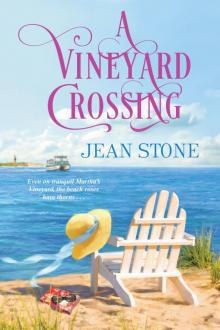 A Vineyard Crossing
A Vineyard Crossing A Vineyard Christmas
A Vineyard Christmas Beach Roses
Beach Roses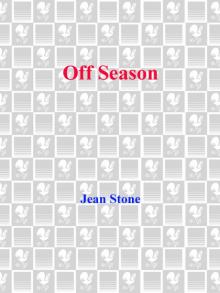 Off Season
Off Season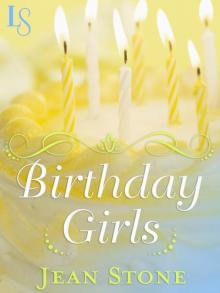 Birthday Girls
Birthday Girls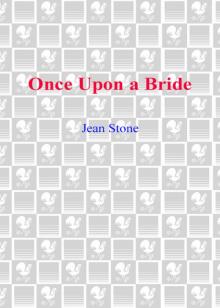 Once Upon a Bride
Once Upon a Bride Places by the Sea
Places by the Sea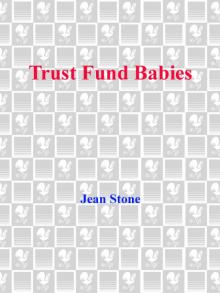 Trust Fund Babies
Trust Fund Babies The Summer House
The Summer House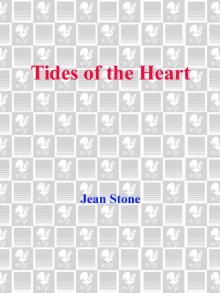 Tides of the Heart
Tides of the Heart Sins of Innocence
Sins of Innocence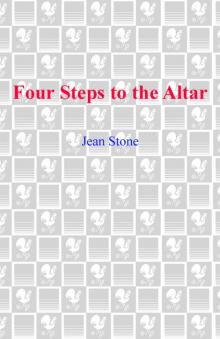 Four Steps to the Altar
Four Steps to the Altar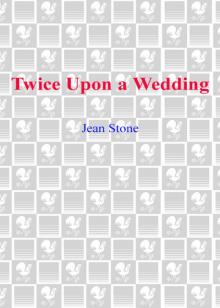 Twice Upon a Wedding
Twice Upon a Wedding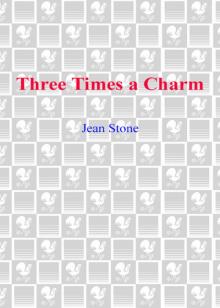 Three Times a Charm
Three Times a Charm